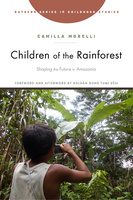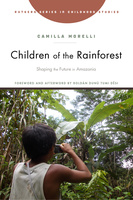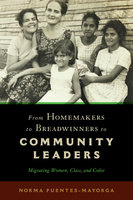
Bold Ideas, Essential Reading since 1936.
Rutgers University Press is dedicated to the advancement and dissemination of knowledge for a wide range of readers. The Press reflects and extends the University’s core mission of research, instruction, and service. They enhance the work of their authors through exceptional publications that shape critical issues, spark debate, and enrich teaching. Core subjects include: film and media studies, sociology, anthropology, education, history, health, history of medicine, human rights, urban studies, criminal justice, Jewish studies, American studies, women's, gender, and sexuality studies, LGBTQ, Latino/a, Asian and African studies, as well as books about New York, New Jersey, and the region.
Rutgers also distributes books published by Bucknell University Press.
Inside the Circle
Queer Culture and Activism in Northwest China
Coastal Landscapes
South Jersey from the Air
Coastal Landscapes
South Jersey from the Air
Children of the Rainforest
Shaping the Future in Amazonia
Children of the Rainforest
Shaping the Future in Amazonia
Borderless Fashion Practice
Contemporary Fashion in the Metamodern Age
Women and New Hollywood
Gender, Creative Labor, and 1970s American Cinema
Unguarded Border
American Émigrés in Canada during the Vietnam War
The Ultimate Guide to the Jersey Shore
Where to Eat, What to Do, and so Much More
The Counterfeit Coin
Videogames and Fantasies of Empowerment
Resilient Kitchens
American Immigrant Cooking in a Time of Crisis, Essays and Recipes
Global White Supremacy
Anti-Blackness and the University as Colonizer
George's Run
A Writer's Journey through the Twilight Zone
From Homemakers to Breadwinners to Community Leaders
Migrating Women, Class, and Color
From Crisis to Catastrophe
Care, COVID, and Pathways to Change
The COVID-19 pandemic has shaken the material and social foundations of the world more than any event in recent history and has highlighted and exacerbated a longstanding crisis of care. While these challenges may be freshly visible to the public, they are not new. Over the last three decades, a growing body of care scholarship has documented the inadequacy of the social organization of care around the world, and the effect of the devaluation of care on workers, families, and communities. In this volume, a diverse group of care scholars bring their expertise to bear on this recent crisis. In doing so, they consider the ways in which the existing social organization of care in different countries around the globe amplified or mitigated the impact of COVID-19. They also explore the impact of the global pandemic on the conditions of care and its role in exacerbating deeply rooted gender, race, migration, disability, and other forms of inequality.











